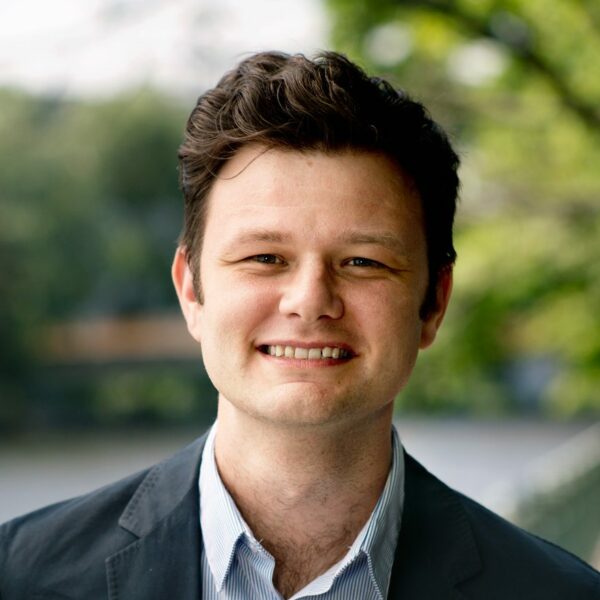Sanjee Singh, Director for International Housing Programs at Habitat for Humanity International (HFHI), explains why the theme of this year’s tenth World Urban Forum (WUF), ‘Cities of Opportunities: Connecting Culture and Innovation’ is highly relevant to the work of international civil society organisations (ICSOs). She shares key lessons from HFHI’s significant experience in designing and delivering innovative urban programming promoting inclusion and cultural diversity.
This is our second perspective from a leading international CSO highlighting working in urban contexts around the world, sharing thoughts on why this is a significant driver for innovation in our sector accompanying our first guest blog from World Vision. Sanjee will also be presenting at our networking event at the World Urban Forum on Monday 10 February.
Be part of our Innovation Report 2020 on ‘Civil Society Innovation and Urban Inclusion’
Driving Sustainable Urbanisation through Innovation & Culture
International civil society organisations have an important role to play in the sustainable development of cities and urban environments. As we move towards 2030, implementing the Sustainable Development Goals and the New Urban Agenda requires prioritisation and collaboration between communities, governments, and private and development sector actors.
Achieving these global ambitions requires special collaborative efforts, sharing best practices and knowledge, targeting resources and linking marginalised communities with public and private sector opportunities. This year’s 10th World Urban Forum is about ´Cities of Opportunities: Connecting Culture and Innovation´. It offers ICSOs a place to share their programming lessons and experiences and to tie some of these threads together.
Partnerships & Initiatives Supporting Culture & Innovation in Cities
Cities are centres for innovation, employment, creativity, and social and economic development. They are complex environments that are constantly changing. Navigating this complexity and addressing challenges around affordable housing, informality and inequality requires innovative solutions and collaboration between multiple partners and sectors.
Habitat for Humanity`s work as an international housing CSO centres around everyone’s need for a home, and recognises that adequate and affordable is critical to building better cities. We take a people-centered, partnership-driven and ecosystem-wide approach to tackle the affordable housing challenge in cities.
Habitat’s Global Urban Approach advocates for comprehensive programing that tackles the housing challenge from an innovative perspective, based on a deeper understanding of the entire housing ecosystem and the cultural and contextual needs of marginalised communities.
The core objectives of our approach include:
- Designing and implementing more inclusive urban housing programs that contribute toward improvements in the living conditions for marginalised communities, and systemic market and policy enhancements across the entire housing ecosystem, implemented through people-public-private-partnerships.
- Creating unique urban hubs, networks, coalitions and platforms that bring together urban practitioners, researchers and policymakers, to create a common vision for development and addressing urban challenges through innovative solutions.
- Demonstrating the transformational impact of housing, its linkages to other sectors and contribution to broader urban development.
Lessons from designing comprehensive innovative urban programs for inclusion and cultural diversity
As cities grow, so too does the need for affordable housing, basic services, social services, infrastructure, etc. However, cities and local governments are struggling to meet the demand caused by rapid urbanisation, which is resulting in growing informality and inequality. Limits to access and affordability mean that marginalised communities struggle to gain access to networked infrastructures, social services and affordable housing. This is pushing them to the insecure edges of urban areas, such as informal settlements, making it even more difficult for them to vulnerable to be able to and difficult to cope with the impacts of climate change, natural disasters and conflict.
Our urban programming over the last decade has taught us something important: designing comprehensive urban programs to improve scale, quality and impact require:
- Partnerships: People-public-private-partnerships that drive urban programming around a common development vision are essential and create space for greater inclusion. These partnerships are critical for supporting assessments, program design and implementation.
- Systematic assessments: Effective urban programming requires the use of culturally–relevant evidence-based solutions that fit the local environment and context.
- Co-design and co-implementation of urban programs: The results of these systematic assessments should serve as a guide for designing and implementing programs. This design requires innovation to address the specific constraints, gaps and opportunities identified to address the urban needs and priorities of marginalised communities.
- Effective entry points: These depend on community priorities, available resources and capacity. They may include: basic services, water, sanitation and hygiene (WASH), community infrastructure or development, housing construction or repairs, increasing security of tenure, advocacy, policy recommendations or capacity building, disaster risk reduction; or increasing accesses to housing finance, products and services.
- Timing: A minimum of five years is needed in a targeted area to achieve impact and build the partnerships necessary to ensure sustainability.
- Monitoring, evaluation, accountability, learning (MEAL) and knowledge management: Promoting good MEAL practices throughout the project’s life cycle and documenting lessons, best practices and results is vital to promote transparency between stakeholders and foster a culture of accountability and evidence to guide actions.
The complexity of the urban challenge requires innovative, cultural and contextually relevant solutions implemented through matrixed partnerships. Implementing comprehensive urban programs contributes toward improving the quality of life of marginalised communities, systemic market and policy enhancements and the sustainability of urban areas.
HFHI is partnering with the International Civil Society Centre, World Vision and Slum Dwellers International on ‘Civil Society Innovation and Urban Inclusion’ to create more spaces for our sector to develop a common learning agenda to inspire and inform continuous improvement and innovation. By doing so, we believe that ICSOs will be better placed to strengthen their impact and influence in connecting culture and innovation to make cities places of opportunity for everyone.







